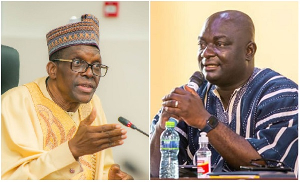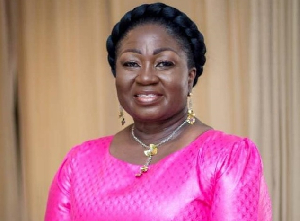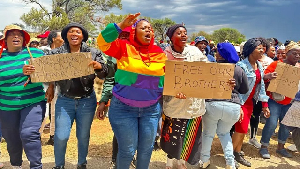The Member of Parliament for Mpraeso, Davis Ansah Opoku (OPK), has penned a lengthy letter to the Speaker of Parliament, Alban Bagbin, over the brouhaha surrounding the declaration of four seats vacant after the Members of Parliament (MPs) occupying these seats changed their political affiliations.
Davis Opoku, in his letter, admonished the Speaker of Parliament not to declare the parliamentary seats in question vacant.
He made his case to the Speaker based on four thematic points, namely: Constitutional Supremacy, Representation, and Precedence; The Prof. Michael Ocquaye Decision: Misinterpretation and Standing Orders Regime; Case Law: Zanetor Agyeman-Rawlings and Tuffour vs. Attorney-General; and Representation and Democratic Integrity.
On Constitutional Supremacy, the MP pointed out that Article 97(1)(g) and (h) of the 1992 Constitution, which states that MPs must vacate their positions after cross carpeting, was never intended to prevent MPs from changing their political affiliations.
“Article 97(1)(g) and (h) maintain stability and consistency in parliamentary representation within a single parliamentary term. These provisions ensure that MPs remain loyal to the platform under which they were elected, thereby preserving the integrity of the electoral mandate and ensuring accountability to voters during that term. Respectfully, I believe the article was never intended to prevent MPs from changing their political affiliations across different terms but rather to discourage shifting allegiances during a parliamentary term,” he wrote.
Davis Opoku also indicated that the former Speaker of Parliament, Prof Aaron Mike Oquaye, who declared the Fomena seat vacant in 2020, under the same circumstances, erred in his decision.
“It is crucial to address Prof. Michael Ocquaye's decision as a point of precedence. In that case, the ruling was based on an interpretation of Article 97(1)(g) under a different regime of Standing Orders. However, the interpretation applied therein was misaligned with the true intent of the Constitution. The Ocquaye decision mistakenly extended the constitutional requirement beyond the scope of the term in question, effectively implying that MPs could be locked into lifelong party allegiance.
“This interpretation was incorrect and contradicted the Constitution's clear language. The clause refers specifically to actions during the current parliamentary term and does not restrict MPs' future political choices. Therefore, the Ocquaye decision should not be a binding precedent, particularly under the new Standing Orders that emphasise constitutional supremacy over internal parliamentary rules,” he added.
MPs for Agona West and Suhum, who are members of the New Patriotic Party (NPP), filed their nominations to contest in the 2024 parliamentary election as independent candidates.
The independent MP for Fomena has also filed his nomination to contest in the election on the ticket of the NPP, and the Amenfi Central MP, a member of the National Democratic Congress (NDC), also filed his nomination to contest as an independent candidate.
Article 97 [1(g) & (h)] of the 1992 Constitution states that “a member of Parliament shall vacate his seat in Parliament if he leaves the party of which he was a member at the time of his election to Parliament to join another party or seeks to remain in Parliament as an independent member; or if he was elected a member of Parliament as an independent candidate and joins a political party.”
Read the NPP MP’s full letter below:
BAI/AE
Watch the latest episode of #SayItLoud on GhanaWeb TV below:
Ghana’s leading digital news platform, GhanaWeb, in conjunction with the Korle-Bu Teaching Hospital, is embarking on an aggressive campaign which is geared towards ensuring that parliament passes comprehensive legislation to guide organ harvesting, organ donation, and organ transplantation in the country.
Politics of Thursday, 17 October 2024
Source: www.ghanaweb.com

















